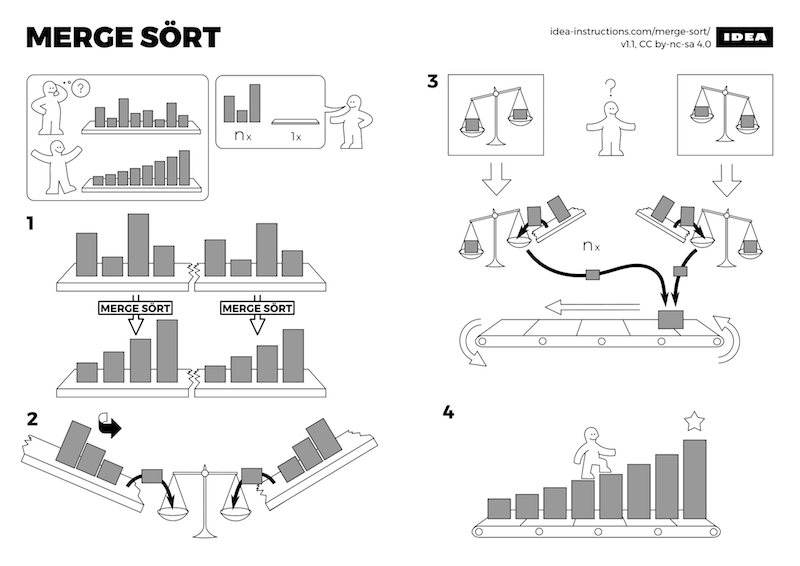Sunny out today! Best to stay indoors and avoid those harmful UV rays 
Happy invoicing!

- The quest to save Stephen Hawking's voice - How technologists helped the legendary physicist retain his distinctive voice: "Hawking was still using the CallText 5010 speech synthesizer, a version last upgraded in 1986. In nearly 30 years, he had never switched to newer technology. Hawking liked the voice just the way it was, and had stubbornly refused other options. But now the hardware was showing wear and tear. If it failed entirely, his distinctive voice would be lost to the ages… They might have to locate the old source code. They might have to find the original chips and the manuals for those chips. They couldn’t buy them anymore, the companies don’t exist. Solving the problem might mean mounting an archaeological dig through an antiquated era of technology. But it was for Stephen Hawking. ‘Let’s get it done,’ Dorsey said."
- When Museums Get it Wrong – Did We Accidentally Accession Someone’s Holiday Booze? - "I have a strong suspicion that an object that is now in our collection at the Grant Museum was in fact a souvenir bottle of plum brandy. How could such a thing happen?" Jack Ashby on the sometimes tricky business of how something that just happens to be in a museum might become a museum specimen.
- How blind players succeed at sports video games they’ve never seen - "Blind people might not seem like a natural audience for most video games since they can’t experience the “video” part that’s a definitional piece of the experience. At a fascinating Game Developers Conference Presentation this week, though, EA Sports Accessibility Lead Karen Stevens talked about how she discovered a significant existing base of blind players in EA's games and how the company is moving to serve it." Kudos to EA Sports for this work.
- What is my dog? - Kelly Conaboy has her rescue dog's DNA sequenced after some idiot tries to mansplain the animal’s age to her: ”Until recently, though, his age and breed were up for debate. This was evidenced by an apparent dog expert at the local dog park on a recent morning. ‘No,’ he said, shaking his head, after asking for the details of my dog… ‘Well… he’s about four,’ I told him, hiding my annoyance well as I am extremely calm. ‘No. I don’t think so,’ he said. Hm. The main reason I wanted to DNA test my dog was to shove the results in this rude man’s goddamn rude ****in’ face, wherever he is.”
- Arago finds new physics with a compass (1824) - Dr. SkySkull on a simple but cool demonstration, and the complex physics that underlies it: ”The phenomenon is cool, and the way it was discovered is also fascinating: it was first observed by the Most Interesting Physicist in the World™, François Arago, using an ordinary compass! It is one of those remarkable discoveries that is, however, largely unknown to most physicists, much less the general public — I only came across a chance mention of it recently that led me to explore further.”
- But Never a Lovely So Real: Despite His Literary Brilliance and Humanist Resolve, Nelson Algren Was the Type of Loser This Country Just Can’t Stomach - Colin Asher on the American author’s complex life as hustler, con man, vagabond, and just about anything else you can think of: ”Algren stole food so they could eat, and he and Amanda sometimes lived for days on milk, potatoes, and onions… Algren stacked boxes in a warehouse and then worked in a health club, where he hosed off businessmen as they completed their workouts. During those years he cultivated friendships with literary types, and also nickel-ante gamblers, criminals, and his peers, the undistinguished poor.”
- Number Systems of the World - Ways of counting, ordered by complexity: ”I translate words included in number words to English, and I use '+' and '×' for implicit additions and multiplications. For instance, I explain the French words vingt et un (21) and quatre-vingt-dix-neuf (99) as "20 and 1" and "4 × 20 + 10 + 9" respectively.”
- A critical analysis of the latest cellphone safety scare - John Timmer of Ars Technica explains how to evaluate a supposedly scientific paper: ”A quick glance at the study identified significant issues with its primary conclusion. Normally, at this point, the decision would be to skip coverage unless the study picked up unwarranted attention from the rest of the media. (See: Scott Kelly's DNA). But in this case, we thought we'd describe how we went about evaluating the paper, since it could help more people identify similar issues in the future.”
- The Polyphonic Screed - A history of ringtones, including the major influence of Thomas Dolby’s company Beatnik: ”When the whole dot-com crash happened, what Beatnik was left with that wasn’t a bunch of fluff was a contract with Nokia, who were looking to put polyphonic ringtones into phones.”
- IDEA - "An ongoing series of nonverbal algorithm assembly instructions." Or, algorithms explained through Ikea instructions, created by Sándor P. Fekete, Sebastian Morr, and Sebastian Stiller:

Happy invoicing!








Comment